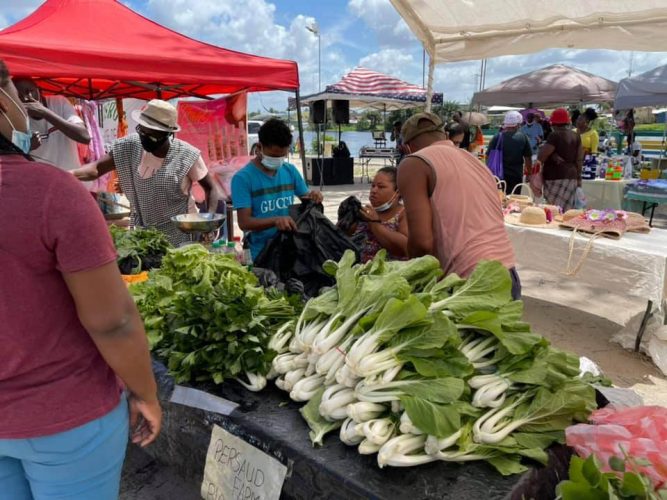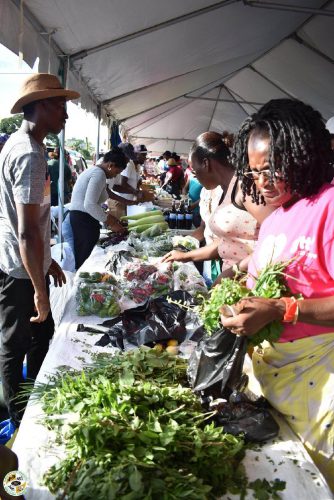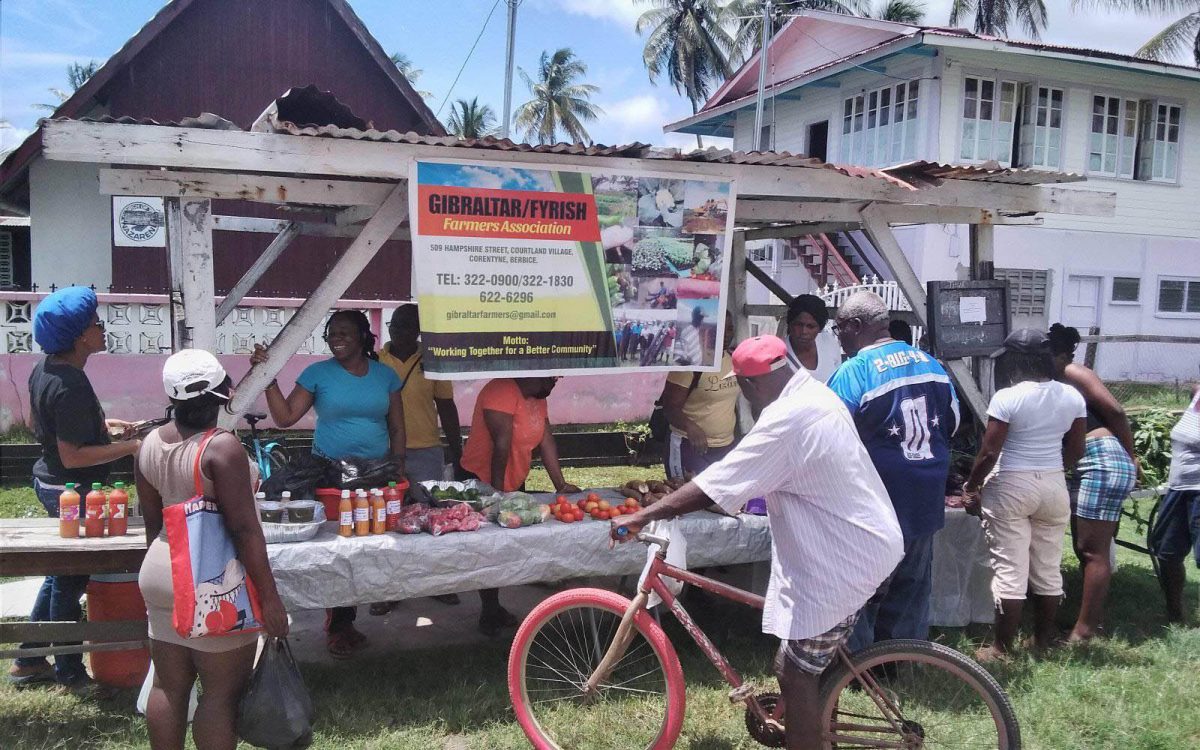Over time, Farmers Markets have proven to be one of the more worthwhile pursuits of the broader agricultural sector, globally and certainly here in Guyana, where the pursuit continues to serve a number of important functions. This is so, particularly, because of the important role that Farmers Markets play in the empowerment of small farmers and farming communities with limited resources and far less access to the larger, more potentially lucrative markets/trading spaces in the wider economy.

This is not to say that in some countries government does not play a role (the extent of that role varies from country to country) in both promoting and supporting Farmers Markets. However, in Guyana, as in many other developing countries, Farmers Markets almost exclusively, are a product of collective community spirit driven by a determination to provide a community-driven service and to create an avenue for earning outside of the mainstream economy.
In theory at least, Farmers Markets seek to remove the ‘intervention of storage’, especially in the marketing of fresh fruit and vegetables which are able to pass directly from the grower to the consumer, disposing of the add-ons that include cost of storage and transport. Aside from the trading function, Farmers Markets serve as informal community meeting places that create meaningful relationships between and among communities situated relatively close to each other.
Here in Guyana, the instance of the Mocha-Arcadia Cooperative on the East Bank of Demerara (there are almost certainly other communities across Guyana where Farmers’ Markets display similar characteristics) one of the more prominent coastal Farmers Markets, is instructive. Benefitting from a closeness that transcends the Farmers Market, the community co-operative has established a reputation for planning and attending commercially successful Farmers Markets whilst simultaneously using the event to foster enhanced community relations. For the community of Mocha – and the nearby communities that benefit from the service – it has been, for the most part, a ‘win-win’ situation.

One of the shortcomings of the ‘culture’ of Farmers Markets in Guyana is that all too often, (and this is a historic problem) they tend to benefit from less than robust central government support. While there has been, in some instances, evidence of government ‘approval’ of the Farmers Market as an economic venture, substantive support in the execution of these events as well as support relating to providing infrastructure and facilities that would enhance the quality of the service has not been consistently forthcoming.
The Mocha/Arcadia Farmers Market has, over several years, been one of several such events across the country that has been unable to attract meaningful levels of either local government or central government attention. Since the community support services necessary for the successful execution of Farmers Markets is heavily dependent on the provision of infrastructure-related services by either central or local government, or both, where that support is not forthcoming the success of the Farmers’ Market stands imperiled.
What would appear to be the current imminent threat to the continuity of the Mocha/Arcadia Farmers Market can be directly linked to a lack of adequate response from either local government or central government to the longstanding challenges which this commendable community initiative has had to endure. The fortunes of the farmers in the community and by extension, the Farmers Market, are now seriously threatened by what would appear to be drainage and irrigation challenges that frequently transform their farms into swamps. What has been a worsening problem over the years (to say nothing about the protracted official indifference to the problem) has resulted in a decline in the extent of acreage under crops and by extension, a progressive reduction in the amount of produce available for sale at the Farmers Markets. All of this appears to have been attended by a sense of frustration amongst the service providers.
With Guyana’s economic direction now largely driven by considerations that are linked to its oil & gas resources, questions are already being raised as to whether the prevailing preoccupation with ‘petro-dollars’ might not serve to roll back both the valuable economic and social bridges that have been built through institutions like the Farmers Markets and whether these losses might not come back to haunt us, down the road. If there is nothing wrong with the transformation of the country’s economic fortunes triggering expanded ambitions that embrace all the sectors of Guyana, including the traditional ones that have proven to serve both economic and social functions, then government itself must be mindful that while merited attention is paid to its oil & gas pursuits, to fail to provide meaningful support for pursuits that are community roots-based is ill-advised.
The extent to which the Ministry of Agriculture pays official and more importantly, structured attention to the Farmers Market aspect of the agricultural sector is unclear. What (as gleaned from reports provided us by functionaries associated with the Farmers Market at Mocha) obtains, is a seeming indifference to resolving the challenges that the Mocha Farmers Market faces.
Over the past two decades, particularly, Farmers Markets have transformed themselves into critical tools for reducing food insecurity as measured from the perspective of households’ proximity to food sources and access to transportation. In that regard there is a direct connection between Farmers’ Markets, where proximity is usually a key support factor, and food security.
If it is altogether understandable that the Ministry of Agriculture, the state agency responsible for fashioning and to some extent, executing the country’s food security policy, is focussed on what one might call ‘the bigger picture’, it has had to respond to justifiable criticism of being myopic in its approach. Its limited support for Farmers Markets would appear to be rooted to its indifference to or misunderstanding of the reality that farmers are a critical component in the creation of local food economies through their role in offering affordable retail sales opportunities for local food producers that not only make farming profitable but also pay attention to the issue of affordability, one of the challenges that still plagues poor communities across Guyana.








